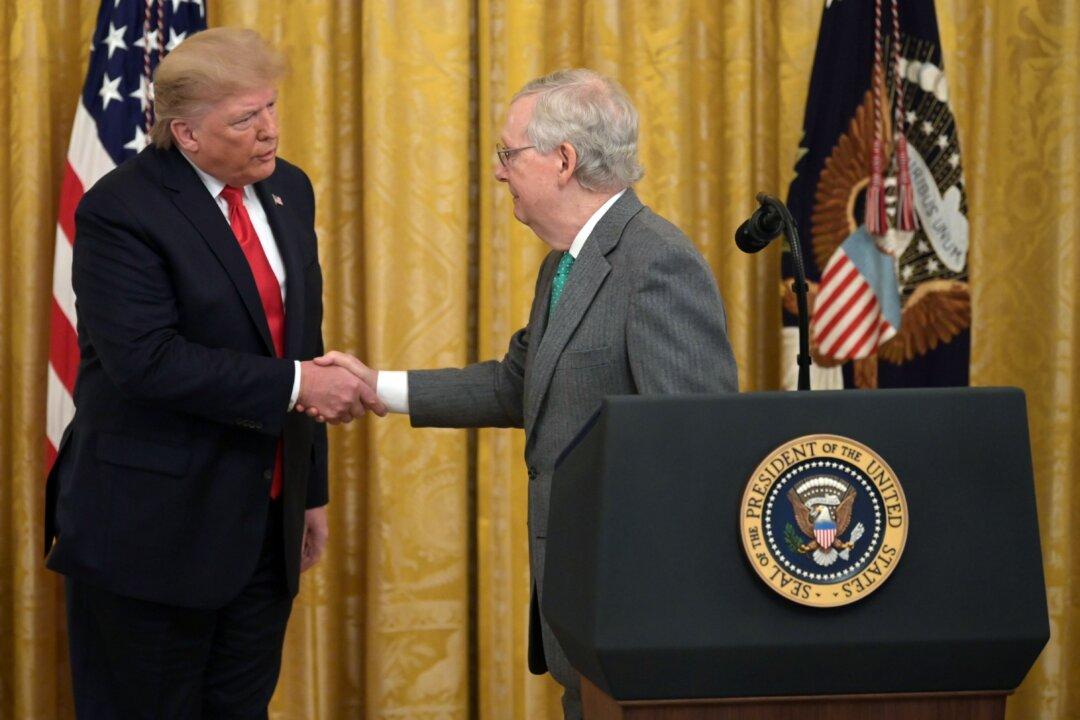President Donald Trump touted the milestones reached in federal judge appointments in a Nov. 6 speech, saying that his administration was on track to reach over 180 nominations by early next year.
Since his inauguration, Trump said he has successfully gotten 158 judges confirmed, including 112 District Court judges, 44 Court of Appeal judges, and two Supreme Court judges. Currently, dozens of judges are awaiting confirmation hearings and votes for district and court of appeal vacancies.




